SAE International, Ford, General Motors and Toyota Announce Formation of Consortium to Address Autonomous Vehicle Safety

Washington, DC, April 3, 2019 – SAE International, along with Ford, General Motors (GM) and Toyota today announced they are stepping forward to form the Automated Vehicle Safety Consortium™ (AVSC) that will work to safely advance testing, pre-competitive development and deployment of SAE Level 4 and 5 automated vehicles.
The AVSC will fill a critical need by providing a safety framework around which autonomous technology can responsibly evolve in advance of broad deployment. The work will ultimately inform and accelerate the development of industry standards for autonomous vehicles (AVs) and harmonize with efforts of other consortia and standards bodies throughout the world.
“Being able to advance the safe deployment of SAE Level 4 and Level 5 automated vehicles represents another exciting chapter in the realization of autonomous mobility and the benefits this will bring to people around the world,” says Edward Straub, DM, executive director of the Automated Vehicle Safety Consortium. “To achieve these benefits, industry collaboration, cohesion and flexibility to merge new ideas with proven safety processes are critical. This is why we are forming the AVSC and announcing our roadmap strategy.”
Ford, General Motors and Toyota have decades of experience developing and deploying safe and trusted vehicles. They share a joint interest in safe deployment of autonomous vehicles, consistent with their long-established commitment to reliability and safety.
The consortium will leverage the expertise of its current and future members to establish a set of AV safety guiding principles to help inform standards development. The first output from the AVSC will be a roadmap of priorities. The roadmap is intended to be applicable for developers, manufacturers and integrators of automated vehicle technology and focuses on data sharing, vehicle interaction with other road users and safe testing guidelines.
“We understand that autonomous vehicles need to operate safely and reliably in concert with infrastructure and other road users to earn the trust of the communities in which they are deployed,” said Randy Visintainer, chief technology officer, Ford Autonomous Vehicles LLC. “Our goal with the consortium is to work with industry and government partners to expedite development of standards that can lead to rule making.”
“Safety is at the center of everything we do at General Motors, and that’s certainly the case with our development of self-driving technology,” said John Capp, director of Global Vehicle Safety at GM. “We are eager to bring our experience to this consortium and to collaborate with other like-minded companies, so we can realize the true benefits of this technology and work toward a future with zero crashes, zero emissions and zero congestion.”
“Industry collaboration in areas that act as a foundation of automated driving systems and vehicles, such as infrastructure or social systems, is a significant step for us to achieve safe deployment of autonomous vehicles,” said Kelly Kay, Toyota Research Institute EVP and chief safety officer. “The formation of this consortium creates a forum to collaborate and cooperate with various stakeholders who will play important roles in forming and synthesizing the automated vehicle eco-system of tomorrow.”
SAE International will leverage the experience of its affiliate organization, SAE Industry Technologies Consortia (SAE ITC), to convene the members of the AVSC. SAE ITC has vast experience in the formation of consortia allowing industry to quickly establish frameworks to address opportunities and challenges. The automotive industry is now leveraging SAE ITC’s successful aerospace industry-managed consortia model.
The AVSC will continue to share its vision and progress throughout the year, including at SAE International’s World Congress Experience (WCX) April 9-11, 2019 in Detroit. To learn more about the AVSC visit https://avsc.sae-itc.org.
SAE Industry Technologies Consortia (SAE ITC®) is an 501(c)(6) affiliate of SAE International®, and its membership is comprised of public and private organizations collaborating in a neutral forum to drive innovative solutions to key industry challenges.
SAE International is a global association committed to advancing mobility knowledge and solutions for the benefit of humanity. By engaging nearly 200,000 engineers, technical experts and volunteers, we connect and educate mobility professionals to enable safe, clean, and accessible mobility solutions. We act on two priorities: encouraging a lifetime of learning for mobility engineering professionals and setting the standards for industry engineering. We strive for a better world through the work of our philanthropic SAE Foundation, including programs like A World in Motion® and the Collegiate Design Series™.
Ford Motor Company (NYSE:F) is a global company based in Dearborn, Michigan. The company designs, manufactures, markets and services a full line of Ford cars, trucks, SUVs, electrified vehicles and Lincoln luxury vehicles, provides financial services through Ford Motor Credit Company and is pursuing leadership positions in electrification, autonomous vehicles and mobility solutions. Ford employs approximately 199,000 people worldwide. For more information regarding Ford, its products and Ford Motor Credit Company, please visitwww.corporate.ford.com.
General Motors (NYSE:GM) is committed to delivering safer, better and more sustainable ways for people to get around. General Motors, its subsidiaries and its joint venture entities sell vehicles under the Cadillac, Chevrolet, Baojun, Buick, GMC, Holden, Jiefang and Wuling brands. More information on the company and its subsidiaries, including OnStar, a global leader in vehicle safety and security services, Maven, its personal mobility brand, and Cruise, its autonomous vehicle ride-sharing company, can be found at http://www.gm.com.
Toyota (NYSE:TM) has been a part of the cultural fabric in the U.S. and North America for more than 60 years, and is committed to advancing sustainable, next-generation mobility through our Toyota and Lexus brands. During that time, Toyota has created a tremendous value chain as our teams have contributed to world-class design, engineering, and assembly of more than 38 million cars and trucks in North America, where we operate 14 manufacturing plants (10 in the U.S.) and directly employ more than 47,000 people (more than 37,000 in the U.S.). Our 1,800 North American dealerships (nearly 1,500 in the U.S.) sold 2.8 million cars and trucks (2.4 million in the U.S.) in 2018 – and about 87 percent of all Toyota vehicles sold over the past 16 years are still on the road today.
Toyota Research Institute is a wholly owned subsidiary of Toyota Motor North America under the direction of Dr. Gill Pratt. The company, established in 2015, aims to strengthen Toyota’s research structure and has four initial mandates: 1) enhance the safety of automobiles, 2) increase access to cars to those who otherwise cannot drive, 3) translate Toyota’s expertise in creating products for outdoor mobility into products for indoor mobility, and 4) accelerate scientific discovery by applying techniques from artificial intelligence and machine learning. TRI is based in the United States, with offices in Los Altos, Calif., Cambridge, Mass., and Ann Arbor, Mich. For more information about TRI, please visit http://tri.global.




